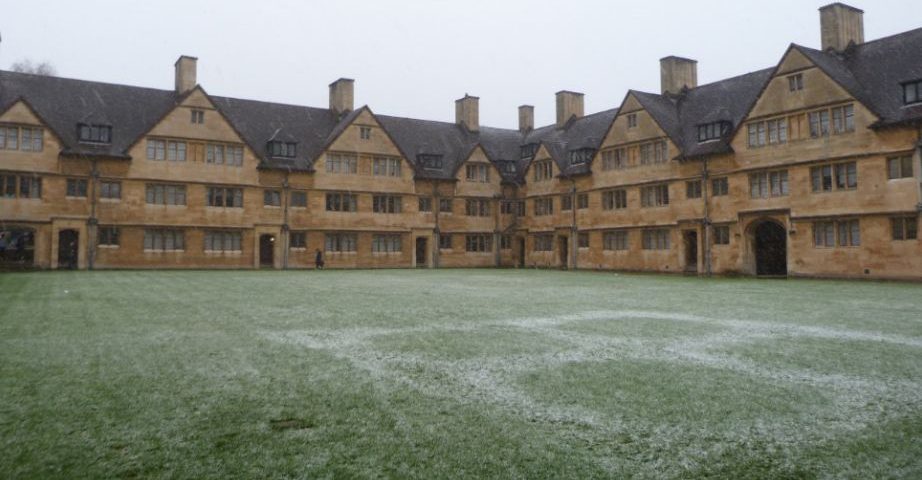
‘There is a crisis of morale amongst hall staff’: Halls Advisory Committee member speaks out
‘There are fears that student wellbeing standards are set to be dangerously lowered’
There is a sense of crisis developing amongst staff and volunteers in Bristol University Halls of Residence. The Residential and Hospitality Services (RHS) Division management, which is responsible for halls, has long been considered ineffective by many of those who work here. This discontent has transformed into, at best, pessimism about the future of jobs, and at worst, fear that standards of student wellbeing will be dangerously lowered.
I am a senior member of the Manor Hall Advisory Committee. I work with the Hall team, both staff and volunteers, to help develop and maintain a strong community in an environment that is safe and fun. I cannot speak on behalf of everyone across all halls, but I can summarise what I believe to be widely held opinions after numerous conversations with colleagues across the university.
As a Masters student, I am in a position to speak freely and openly without fear of professional repercussion (I hope). But not a single staff member I have approached is willing to openly put their name to the words written in this article. It is left to those of us who are not dependent on the university for our livelihood to communicate what is happening.

The ongoing pastoral review has been criticised for a number of reasons
In the last year, seven Student Support Advisors (SSA) have left their posts. They are the backbone of the hall, working tirelessly to handle personal and pastoral issues, treating cases of extreme mental ill health, disciplining students who have broken rules and all the time sorting through the administrative mountain that all this generates. SSAs are the first port-of-call for students during daytime, and it is they, together with Wardens, Deputy Wardens and Senior Residents, who provide local 24/7 support for students in need. Recently however, they have been handed more work to process as student numbers increase.
All this happens at a time when they have been described as a “single point of failure” in the hall teams by the RHS director. It is no surprise that so many have left in frustration and despair. It is not managers who have had to deal with vulnerable people in times of trauma, or comfort bereaved students and their peers at times of crisis. SSAs have been expected to competently negotiate these situations with little to no specialist training, while they are undervalued and have been told in a recent meeting their position in its current form could no longer exist after the Pastoral Review is complete.

Hall bars continue to be a source of contention between halls and RHS
The Pastoral Review into halls is to be considered the final straw for members of hall teams. Halls are not perfect, but suggested changes must be critically evaluated and the reasoned conclusions put into practice.
This Review, however, has been conducted in a controversial way, with one Senior Resident noting last week: “The metrics that they have used to measure the quality of the pastoral system seem arbitrary and unscientific”. Many fear the new model, which has been described as “radical”, will remove much of what makes halls special and successful. The management insist no decisions or conclusions have been made, despite wishing to present an entirely new model by January and have it implemented by September. The suspected changes are these:
● Wardens and Deputy Wardens to be removed from post
● The role of SSA to be discontinued
● Halls instead to have a manager and administrator located off-site
● Number of students per Senior Resident to be increased
● Night-time supervision of student wellbeing to be conducted from campus (not in Hall)

The findings of the review will be released to Wardens on 13th December
RHS managers are keen to cut costs. The discounted accommodation that is offered to Wardens, Deputy Wardens and Senior Residents was frequently cited as lost income in the latest update on the Review, and was identified as the most significant difference between our halls model and those of the other eight universities. If this centralisation agenda is forced through like the bars, the ultimate result will be less effective. A Chair of another Hall Advisory Committee told me “it will fail in community building and worse, is a major threat to student wellbeing”. All this comes in the recent wake of successive student suicides and a university-wide focus on student wellbeing.
We may be about to witness the unfolding of the biggest change to life at Bristol University. As I am to graduate in July 2018, I won’t be around to witness whatever the consequences will be. Yet I would not want future students to suffer because I did not speak up when I had the chance.
Tom Phillips is a fourth year Bristol student and a member of the Manor Hall Advisory Committee









































